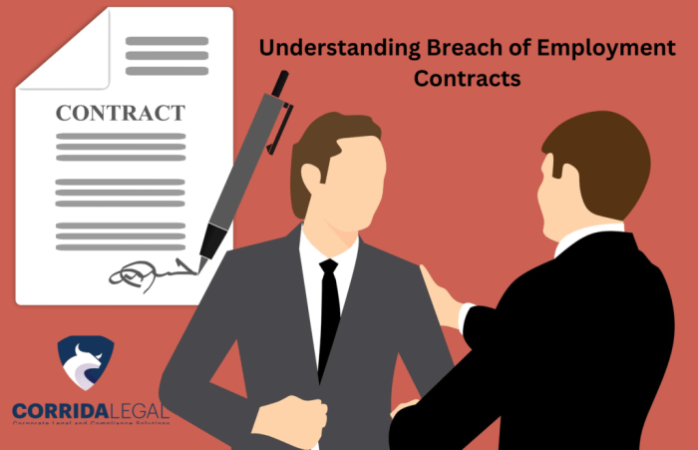
Navigating the complex legal landscape of weight discrimination within Los Angeles law enforcement requires skilled representation. This often-overlooked form of employment discrimination can have devastating consequences for officers, impacting their careers and overall well-being. Understanding the legal avenues available and finding the right attorney is crucial for those facing such challenges.
This guide explores the critical aspects of pursuing a weight discrimination claim against a Los Angeles law enforcement agency. We will examine the legal foundations of such claims, highlight the characteristics of effective legal counsel specializing in this niche area, and Artikel the legal process, potential outcomes, and available resources for affected officers. Prevention and mitigation strategies within law enforcement agencies will also be discussed.
The Legal Process and Potential Outcomes

Filing a weight discrimination lawsuit against a Los Angeles law enforcement agency is a complex process requiring careful planning and execution. Success hinges on establishing a strong case demonstrating discriminatory practices and their adverse impact on the plaintiff. The legal landscape is challenging, requiring meticulous documentation and a thorough understanding of relevant employment laws.
Steps in Filing a Weight Discrimination Lawsuit
The initial step involves filing a complaint with the relevant agency, such as the Equal Employment Opportunity Commission (EEOC). This complaint details the alleged discriminatory actions and their impact. After investigation, the EEOC may issue a “right to sue” letter, allowing the plaintiff to proceed with a lawsuit in federal court. The lawsuit involves formal pleadings, discovery (gathering evidence), potential mediation, and, if necessary, trial. Throughout this process, legal counsel specializing in employment discrimination is crucial. Experienced attorneys navigate the intricacies of the legal system, ensuring the plaintiff’s rights are protected. They gather evidence, present arguments, and represent the plaintiff in court.
Potential Legal Outcomes
Several outcomes are possible in a weight discrimination lawsuit. A settlement may be reached during negotiations, avoiding a trial. Settlements often involve financial compensation and potential policy changes within the agency. If a settlement isn’t reached, the case proceeds to trial. A judge or jury then determines liability and damages. A successful verdict may result in significant monetary awards, including back pay, compensatory damages for emotional distress, and punitive damages to deter future discrimination. Conversely, an unsuccessful outcome may result in dismissal of the case. Either party may appeal an unfavorable verdict to a higher court. The appeals process can be lengthy and complex, requiring further legal representation and potentially additional costs.
Factors Influencing Success Rate
Several factors influence the success rate of weight discrimination lawsuits. Strong evidence of discriminatory practices is paramount. This includes documentation of discriminatory comments, biased evaluations, and unequal treatment compared to similarly situated employees. The plaintiff’s ability to demonstrate a causal link between their weight and adverse employment actions is also critical. The strength of the legal representation significantly impacts the outcome. Experienced attorneys with a proven track record in employment discrimination cases are essential. Finally, the specific laws and precedents in California and federal law influence the outcome.
Examples of Weight Discrimination Cases in Los Angeles
While specific details of legal cases are often confidential due to settlement agreements, it’s important to understand the general landscape. It’s difficult to publicly name specific cases without breaching confidentiality agreements, and publicly available information on settled cases is often limited. However, the following table provides a hypothetical representation of potential case outcomes to illustrate the range of possibilities. Remember that these are hypothetical examples and do not represent actual cases.
| Case Name | Outcome | Year | Key Factors |
|---|---|---|---|
| Doe v. Los Angeles Police Department | Settlement | 2022 | Strong evidence of discriminatory comments and biased performance evaluations; experienced legal representation. |
| Roe v. Los Angeles County Sheriff’s Department | Dismissal | 2023 | Insufficient evidence linking weight to adverse employment actions; weak legal representation. |
| Smith v. Los Angeles Fire Department | Judgment for Plaintiff | 2021 | Clear evidence of discriminatory weight standards; strong legal representation; successful demonstration of disparate impact. |
| Jones v. Los Angeles County Probation Department | Appeal Pending | 2024 | Initial judgment for defendant; plaintiff appealing based on new evidence and legal arguments. |
Resources and Support for Affected Officers
Navigating weight discrimination within the Los Angeles law enforcement system can be challenging, but several resources and support systems are available to affected officers. Understanding these avenues for assistance is crucial for protecting your rights and well-being. This section Artikels available options for support, including organizational aid, potential financial assistance, and the process for filing formal complaints.
Finding the right support can significantly impact the outcome of a weight discrimination case. It’s important to remember that you are not alone and that help is available. The following resources can provide guidance, legal representation, and emotional support during this difficult time.
Available Resources and Support Systems
Several organizations and government agencies offer assistance to law enforcement officers in Los Angeles facing weight discrimination. These resources provide vital support, ranging from legal counsel to emotional support networks.
- Employee Assistance Programs (EAPs): Many law enforcement agencies offer EAPs, providing confidential counseling and support services to employees dealing with workplace issues, including discrimination. These programs often include referrals to mental health professionals and legal advisors.
- Unions and Associations: Law enforcement unions and professional associations often provide legal representation and advocacy for their members facing discrimination. They can help navigate the legal process and ensure officers’ rights are protected.
- Legal Aid Organizations: Several non-profit legal aid organizations in Los Angeles offer free or low-cost legal services to individuals who cannot afford legal representation. Eligibility criteria vary depending on income and circumstances.
- Support Groups: Connecting with other officers who have experienced similar situations can be invaluable. While formal support groups specifically for weight discrimination in law enforcement may be limited, seeking peer support through professional networks or online forums can provide a sense of community and shared understanding.
Relevant Organizations and Government Agencies
Several entities play a crucial role in addressing employment discrimination claims, offering guidance and support to those affected. Knowing which agencies to contact is essential for pursuing a successful resolution.
- Equal Employment Opportunity Commission (EEOC): The EEOC is a federal agency responsible for enforcing federal laws prohibiting employment discrimination. They investigate complaints and can initiate legal action against employers engaging in discriminatory practices.
- California Department of Fair Employment and Housing (DFEH): The DFEH is the state agency responsible for enforcing California’s Fair Employment and Housing Act, which prohibits discrimination based on weight and other protected characteristics. They handle complaints at the state level.
- American Civil Liberties Union (ACLU): The ACLU advocates for civil rights and liberties and can provide legal assistance and support to individuals facing discrimination.
Financial Aid and Legal Assistance Programs
Financial constraints should not prevent officers from pursuing legal recourse against weight discrimination. Several avenues exist for obtaining financial aid and legal assistance.
- Legal Aid Societies: These organizations offer free or low-cost legal services to individuals who meet specific income requirements. They can provide representation in discrimination cases.
- Pro Bono Attorneys: Many attorneys offer pro bono services, providing free legal assistance to individuals who cannot afford legal representation. Finding a pro bono attorney may require some research and networking.
- Contingency Fee Agreements: Some attorneys work on a contingency fee basis, meaning they only receive payment if they win the case. This can mitigate financial risk for officers pursuing legal action.
Filing a Complaint Regarding Weight Discrimination
Filing a complaint involves a specific process with various agencies. Understanding the steps involved is essential for a successful outcome. The process may vary depending on the agency you contact.
- Gather Evidence: Collect any documentation that supports your claim of weight discrimination, such as emails, performance reviews, and witness statements.
- File a Complaint: Submit a formal complaint to the appropriate agency, whether it’s the EEOC, DFEH, or another relevant body. Follow their specific instructions and deadlines.
- Investigation: The agency will investigate your complaint, which may involve interviews and a review of evidence.
- Mediation or Litigation: If the investigation does not resolve the issue, mediation or legal action may be pursued.
Prevention and Mitigation Strategies

Preventing weight discrimination within Los Angeles law enforcement agencies requires a multifaceted approach focusing on proactive measures, robust policies, comprehensive training, and the cultivation of a supportive work environment. Addressing weight bias effectively necessitates a commitment from all levels of the agency, from leadership to individual officers. This involves not only establishing clear guidelines but also fostering a culture of respect and understanding.
Effective policy and training are crucial for preventing weight discrimination. Policies must explicitly prohibit weight-based discrimination in all aspects of employment, from hiring and promotion to disciplinary actions and performance evaluations. Training programs should educate officers and supervisors on the legal implications of weight bias, promote awareness of unconscious bias, and provide practical strategies for creating a more inclusive workplace. Furthermore, these programs should emphasize the importance of fair and objective performance evaluations that focus on an officer’s abilities and job performance, rather than their weight.
Policy and Training to Address Weight Bias
A comprehensive approach involves implementing clear, concise, and easily accessible policies that define weight discrimination and Artikel the consequences of violating these policies. These policies should be regularly reviewed and updated to reflect evolving legal standards and best practices. Training should be mandatory for all personnel and should include interactive workshops, case studies, and role-playing exercises to reinforce the principles of fairness and inclusivity. The training should go beyond simple awareness; it should equip officers and supervisors with the tools and skills to identify and address instances of weight bias effectively. Regular refresher training should be provided to ensure that policies and best practices remain at the forefront of agency operations. Furthermore, the training should incorporate diverse perspectives and experiences to ensure its relevance and effectiveness across the agency.
Creating a Supportive and Inclusive Work Environment
Creating a supportive and inclusive work environment is paramount in preventing weight discrimination. This involves fostering a culture of respect and acceptance where officers of all sizes feel valued, respected, and empowered to contribute their full potential. Open communication channels should be established to encourage officers to report instances of weight bias without fear of retaliation. Leadership should actively model inclusive behavior and create opportunities for officers of all sizes to participate in agency initiatives and events. This includes providing access to wellness programs that promote health and well-being without focusing solely on weight loss. Regular feedback mechanisms should be in place to assess the effectiveness of efforts to create a more inclusive environment and to identify areas needing improvement.
Sample Policy Statement
The Los Angeles Police Department is committed to providing a fair and inclusive work environment free from all forms of discrimination, including weight discrimination. Weight will not be a factor in hiring, promotion, assignment, discipline, or any other employment decision. Any employee found to have engaged in weight discrimination will be subject to disciplinary action, up to and including termination. Supervisors are responsible for ensuring that all personnel under their supervision are treated fairly and respectfully, regardless of their weight. The Department will provide training to all employees on the prevention and recognition of weight discrimination. Employees are encouraged to report any instances of weight discrimination to their supervisor or to the Department’s Equal Employment Opportunity Office. This policy applies to all employees, regardless of rank or position.
End of Discussion

Successfully combating weight discrimination in law enforcement demands a proactive approach, combining legal expertise with a strong understanding of the unique challenges faced by officers. By understanding the legal framework, identifying qualified legal representation, and utilizing available resources, affected officers can navigate this difficult process and work towards a more equitable and inclusive workplace. Remember, seeking legal counsel early is vital to protecting your rights and achieving a just resolution.
Essential Questionnaire
What constitutes weight discrimination in law enforcement?
Weight discrimination occurs when an officer faces adverse employment actions (demotion, termination, etc.) solely or primarily due to their weight, provided it doesn’t affect their ability to perform essential job functions.
How much does it cost to hire a weight discrimination attorney?
Attorney fees vary widely. Some work on a contingency basis (taking a percentage of any settlement or judgment), while others charge hourly rates. It’s crucial to discuss fee arrangements upfront.
Can I file a weight discrimination claim anonymously?
Anonymity is generally not possible during the formal legal process, as you will need to identify yourself and the alleged discriminator to the relevant authorities and the court.
What if my department has a weight policy?
Even with a weight policy, it must be demonstrably job-related and consistently applied. If the policy is discriminatory or inconsistently enforced, it could be challenged legally.




